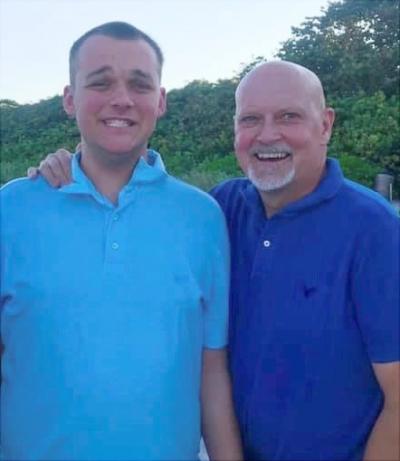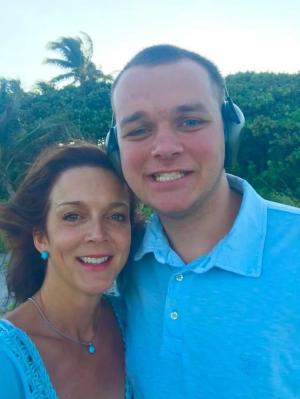April 2 is World Autism Awareness Day. Awareness for Leslie Werries and her husband, Blessing orthopedic and sports medicine surgeon Dr. Barry Werries, came more than 20 years ago with the birth of their youngest son, Cal. The following is a glimpse into their life with autism.

Loving Cal
Leslie Werries remembers vividly the car ride home after receiving the diagnosis that her youngest son, Cal, was a person with autism.
“That was the longest ride home from Chicago I’ve ever had,” she said.
“It’s devastating because you have all these hopes, dreams, and expectations for the future. It’s like a big slap in the face that your child is not going to grow up to be what you had dreamed,” Leslie added.
“You know what we did? We loved him right where he was,” she continued. “We learned to see the world through Cal’s eyes. We learned patience, understanding, and full acceptance of Cal’s abilities. Every day our family strived to gain all the information, education, and resources we could to help Cal be the best possible Cal he could be.”
In addition to starting a support group in the community in which they lived at the time, Barry and Leslie worked and donated to local autism fundraisers, met with local first responders to provide insight into what they may encounter with a person with autism, and helped establish the CareTrek system for individuals with disabilities who wandered and were lost.
What is autism?
According to the National Autism Association, autism impacts normal development of the brain in the areas of social interaction, communication skills and cognitive function. Individuals with autism typically have difficulties with verbal and non-verbal communication and social interactions, among other behavioral and sometimes medical challenges.
Autism varies from person to person. On a scale of 1-10, with 1 being a person with minimal functional ability and 10 being high functioning, Leslie says at the time he was diagnosed at the age of 2, Cal was a 5 on the scale.
“He has made lots of progress through the years,” she said. “Although he will never be able to live alone, he works hard to gain skills for independence, social skills and daily living skills.”
What the world needs now is….

In addition to general awareness of autism, which affects one in every 44 children, Leslie says persons with autism and their loved ones need acceptance and assistance. The assistance needed is in the form of programming and support for autistic adults.
“There is much in the way of intervention for children during the school years. Once they graduate, there is nothing,” Leslie stated. “You don’t stop having autism when you graduate. These are adults and, in many cases, their families will be their caretakers for the rest of their lives. Families are really struggling once their kids age out of the education system.”
As for acceptance, Leslie says Cal is a big man, standing 6 foot 4 inches tall and 260 pounds. There have been times in public when his reaction to a challenging situation has drawn stares from those nearby.
“If you encounter someone with autism in public, be compassionate. They’re not going to hurt you,” she said. “None of us are perfect. We all have our idiosyncrasies.”
Cal’s contribution
Make no mistake about it, Cal Werries gives much to those around him.
“Our other three children are more compassionate, more understanding, and have seen the world in a different light by having Cal as a brother,” Leslie said. “Our grandchildren are now growing up around Uncle Cal. For them to be accepting at a young age, I think is going to make them better human beings, too.”
“Cal just makes us better people because he see things differently than we do. He makes us slow down and cherish even the smallest steps of progress in his life. The first time he said ‘I love you mom’ at age 10, it was like winning the lottery,” she concluded.
